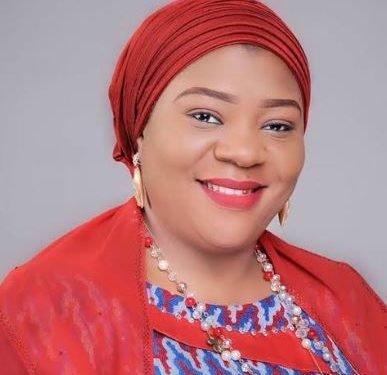Hon. Hajia Binta Mamman, a graduate of business administration was a full time house wife before seeking to contest election to represent Gurara constituency in the Niger House of Assembly elections in 2015.
Providence pushed her into politics when the APC law maker contested in a PDP stronghold and won. Reelected in 2019, Hajia Mamman is the only female lawmaker in the house with 27 men.
Despite making up 49.4% of the total population, women have been marginalised in Nigeria’s political space. According to data from the Centre for Democracy and Development, women formed 4.17% of elected office holders in the 2019 elections, a decline from 2015-19 where women formed 5.65% of elected office holders.
Violence, political thuggery, money politics, culture and tradition are factors which often dissuade women from seeking political office. Hajia Mamman confessed to experiencing enormous challenges when she initially set out in 2015 and even in 2019 when she sought reelection for a second term.
“Finance and male domination are the main challenges I encountered when I set out to contest in 2015. People also thought I was wasting my time because I was seeking election in a PDP strong hold.
“The experience was slightly different in 2019 and I have the good people of Gurara to thank for their collective effort. I just came out of litigation a week ago. I went through a lot of trauma but power belongs to God and He gives to whom he wills at his own time,” she told The Nation.
Speaking on how women can increase their chance in politics, she admonished women seeking public office to have a strong determination in order to survive threats and intimidations.
“If you want to get to the height of it, try to discipline yourself. As a woman, all eyes are on you. A man can do any stupid thing and get away with it but as a woman, it’s not the same. Self-respect first and then you’ll gain the respect of other people and that will keep you going in the system,” she advised.
Mamman, who further said it’s only fair for women to contest public office owing to their immense contributions during campaigns, was quick to add that women are often their own enemies in politics.
“Some women don’t want me to say that, but it is the reality. If men are seeking positions, they come together and negotiate but women would watch you carry your cross alone instead of supporting you. We need more women collaboration among women,” she admitted.
Women and children are often the face of poverty in Nigeria but in a political culture where women often do not vie for public office; it leaves room for social benefits marginalisation.
“There were places I visited during my campaign and I had to secretly shed tears. Women were asking for potable water and classrooms for their school children. Some schools had no structure and students had to sit on bare floors.
‘’Those situations gave me the courage and zeal to intensify my efforts. I made a vow during the campaign that if I win, I’ll make a difference and I’m doing that.”
Speaking on her reform programmes for education, she said: “In my first tenure, I dug 47 boreholes and hand pumps in different wards and villages. I secured the construction of classrooms and renovations of schools in different wards.
‘’I supplied schools with furniture because there are schools where pupils don’t have chairs to sit. I also made available exercise books and school bags for those in primary schools”.
Her empowerment programme for women saw to the training of 180 women, who were also supported with starter packs in different skills.
“Poverty level among women is very high. One of the women I empowered gifted me a bag with a purse saying she has never spent one day without money in her pocket since the day I gave her a sewing machine.
‘’If I get allocation for constituency projects and I refuse to use it for the good of my people, I will be accountable to God on the day of judgement,” she told The Nation.
Reporting commissioned by the Centre for Democracy and Development (CDD), Abuja.
